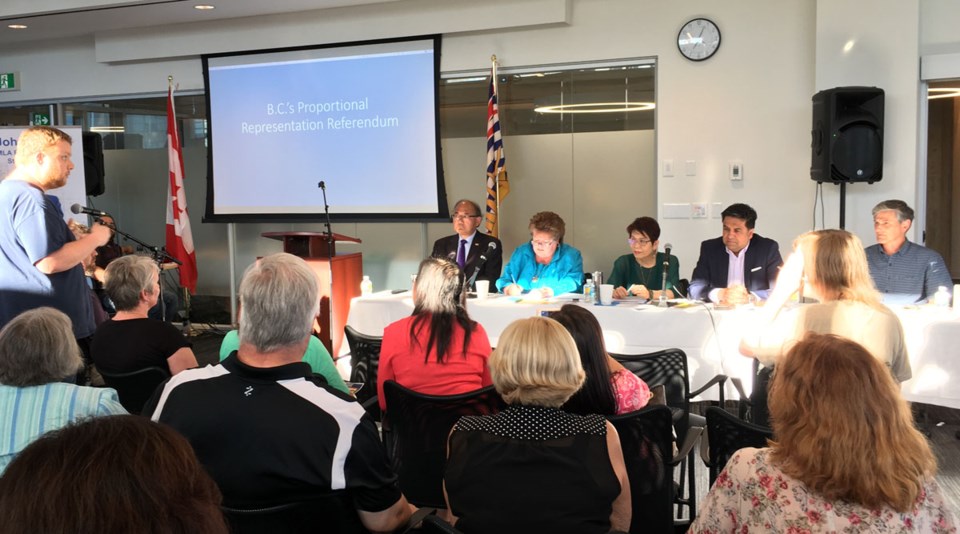All four Richmond MLAs, along with their BC Liberal Party leader, gathered last week to express their concerns regarding the upcoming B.C. referendum on changing the way the province elects politicians.
“The concern we have as BC Liberals is that the referendum is all being forced into a very short period of time. It has been designed to be confusing when people make their decision,” said BC Liberal leader Andrew Wilkinson at a meeting at Trinity Western University with MLAs John Yap, Linda Reid, Teresa Wat and Jas Johal.
The referendum on electoral reform will be held this fall as a mail-in ballot between Oct. 22 and Nov. 30.
The Liberals also stated their opposition to proportional representation (PR), an alternative electoral system in which the number of seats a party has in the Legislature reflects its share of the popular vote.
PR will create “politically appointed MLAs” who don’t know about their ridings, complicate the electoral process, increase governmental costs and create uncertainties that come with running a new system, according to the Liberals.
Also concerning is the suggestion PR could give extremist parties, such as an anti-immigration parties, a seat in the Legislature and influence in government, said the MLAs.
Finally, there is the practical challenge of getting people from a variety of parties to work together.
“There is some sort of fantasy that all the different parties in the Legislature elected by the PR system are going to collaborate,” said Wilkinson.
“In a PR system, all votes count."
However, Nick Loenen, a former Richmond councillor and MLA, and co-founder of the advocacy group Fair Voting BC, said the PR system is what B.C. needs now because it is a modern system that better reflects our diverse society.
“In a PR system, all votes count. If you look at the four ridings in Richmond, you’d think everyone in Richmond voted for the BC Liberals, but that’s not so at all. Half the people did not vote for the BC Liberal party,” said Loenen.
“Province wide, a party with 40 per cent of the vote can form a majority government and have 100 per cent of power, which is quite common. So 60 per cent of the people cannot find anybody in the Legislature they voted for.”
Leonen said the current system worked well before, when “everyone thinks the same and we have a more homogenous society.
“But Canada has changed, B.C. has changed and Richmond has changed rapidly. Now we have much greater diversity, and (that diversity) has to be represented in the Legislature.”
Although some PR elected governments, such as in Italy, have had a high turnover rate, others have been extremely stable.
Moreover, the fact different parties have to seek consensus is viewed by PR proponants as one of the system’s strengths.
For more information about the referendum, check Elections.bc.ca/Referenda.



